How Covid-19 is effecting Malawi, and stories of productive, powerful results
26 August 2020
A warm welcome to this month's newsletter from the warm heart of Africa. Our Executive Director reports on Covid-19, and we report on how Tiyeni adapts to farmers' suggestions, the latest spectacular results from our survey and more. Safety of farmers comes first and in the photo above our Executive Director is briefing farmers on how they can make face masks from locally available resources to protect themselves from Covid 19.
Isaac Monjo Chavula, Executive Director, reflects on the Covid-19 virus
Malawi announced the first three cases of coronavirus on 3rd April. But the government had announced plans to implement a lockdown on 22nd March even before any case was recorded locally. This proposal for total lockdown was considered by many to be a mere political decision intended to block the fresh presidential elections taking place on 23rd June. At this stage government tried to defend its position but lacked justification and failed any clear direction as to what options were available to support people’s livelihoods. The majority of the population depends on day-to-day vending for food mostly in congested market places.
Four months later, the Covid-19 pandemic situation has completely changed. The country is experiencing increasing cases on daily basis. Health facilities are becoming overstressed, understaffed and congested. At 21st August 2020, there were at least 5,193 cases and 163 deaths from coronavirus countrywide.
Though the Government, NGOs and civil society organisations are providing support to health workers and the general public in the communities, many poor people both in rural and urban areas remain excluded and unprotected - hence vulnerable to infection by the deadly coronavirus.
The situation has forced government departments, private sector, NGOs and civil society organisations to impose stricter Covid-19 regulations such as mandatory wearing of face masks, applying hand sanitizers, washing hands with soap as well as maintaining a social distance of about two metres - it is mandatory to wear face mask to enter an office, clinic, bank or shop for services. This has created a great challenge for the poor many of whom cannot afford a face mask and as a result are denied access to health services, entry to shops and government department offices, NGOs and civil society offices. Very few rural poor can afford a face mask even though it is being sold at a seemingly low cost of about MK500.00 (about £0.54) per mask.
At a field day I attended yesterday in Chimbongondo area, there were only three farmers with a face mask, out of an attendance of about fifty farmers. It was good that Tiyeni office procured some locally-made face masks and hand sanitizers for the safety of participants. France Gondwe (Monitoring & Evaluation Officer) made sure every participant got sanitized, was given a face mask and that it was properly worn before participating in the field day. Frequent reminders were held to observe social distancing, hygiene measures, etc.
At the end of the event, the community representative appealed for help from well wishers for protection from Covid-19. She asked for face masks so that even the poor can access health and other economic services which currently remain out of reach in the absence of a face mask.
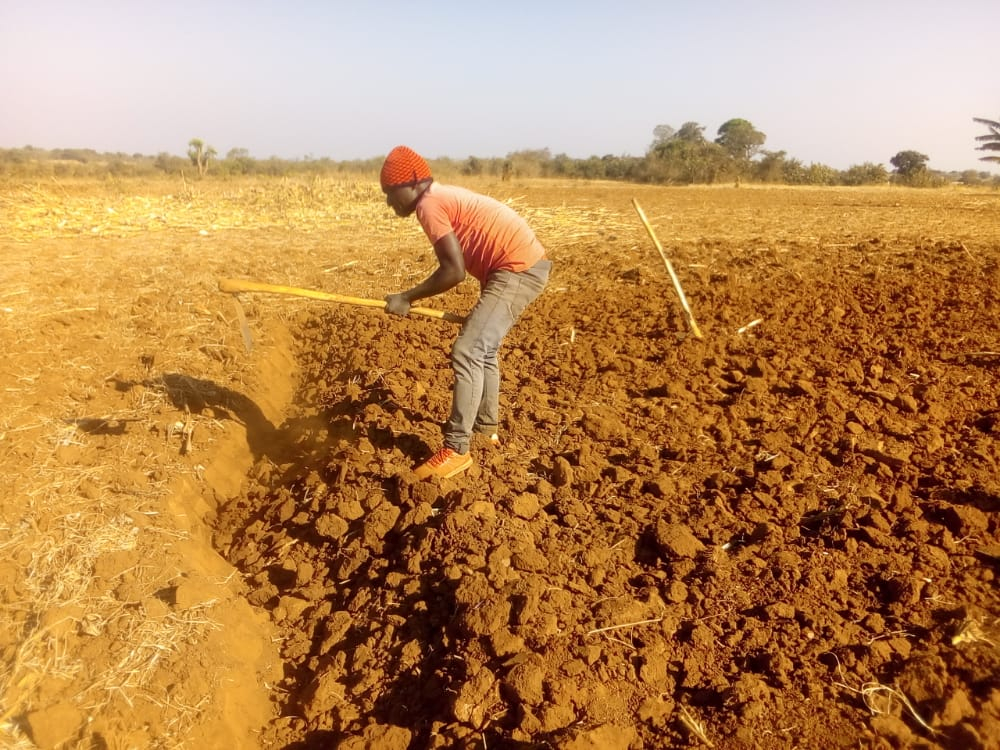
Tiyeni works WITH farmers. So, when farmers come up with something new, Tiyeni staff listen and adopt it if it works. Instead of doing the tilling (breaking the hardpan) in September or October - when they used to - and when the dry summer had baked the ground even harder, it was the farmers who suggested doing it in June and July when the soil still has some moisture and is more easily worked. And so that is what happens now and see the pictures! This means they start mulching earlier with the huge beneficial effects on the soil and another farmer-led initiative.
Nearly 100 farmers came together for a field day, organised by Tiyeni, in Northern Malawi. Farmers here sing "This is the right way of farming, let us not go back to the old ways!" The field day is a key training tool for teaching rural communities about Deep Bed farming. The day was also an opportunity to advise farmers on personal protection from Covid-19. The enthusiasm for Deep Bed Farming shown by attendees emphasises how important these field days are.
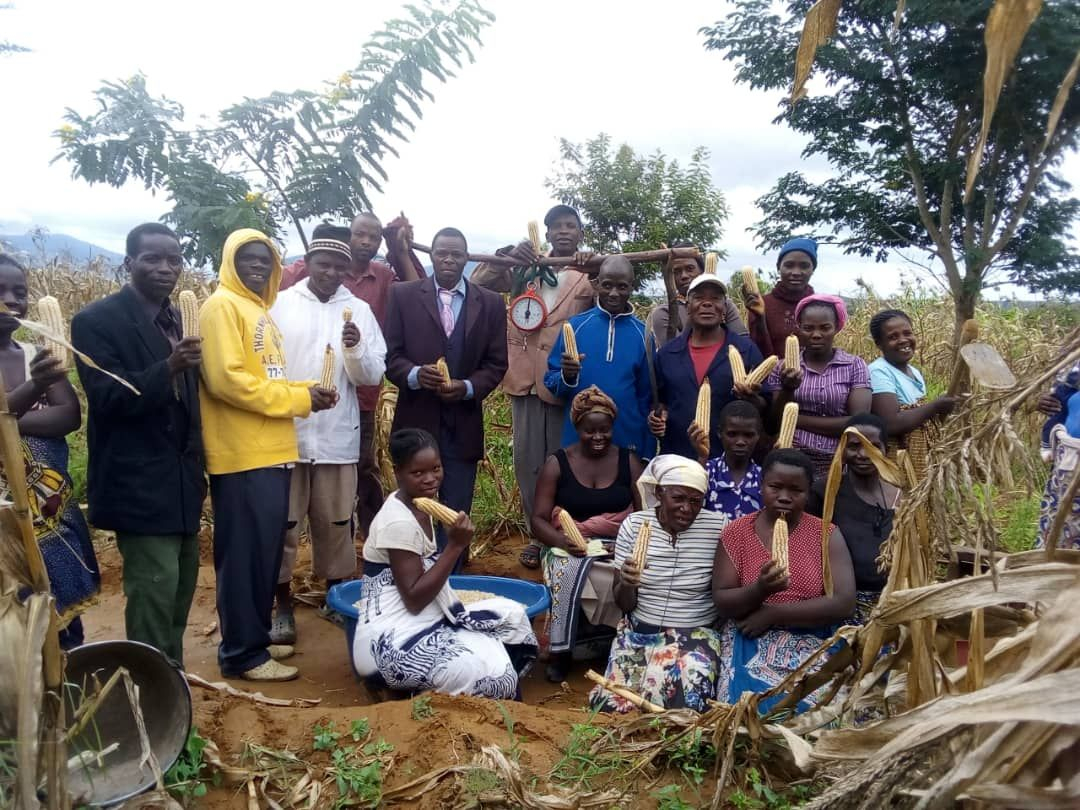
Our latest survey of farmers adopting Deep Bed Farming (DBF) has produced spectacular results: a doubling of maize yields, leading to around a tenfold increase in profitability. You can link to the full story right here on our website.
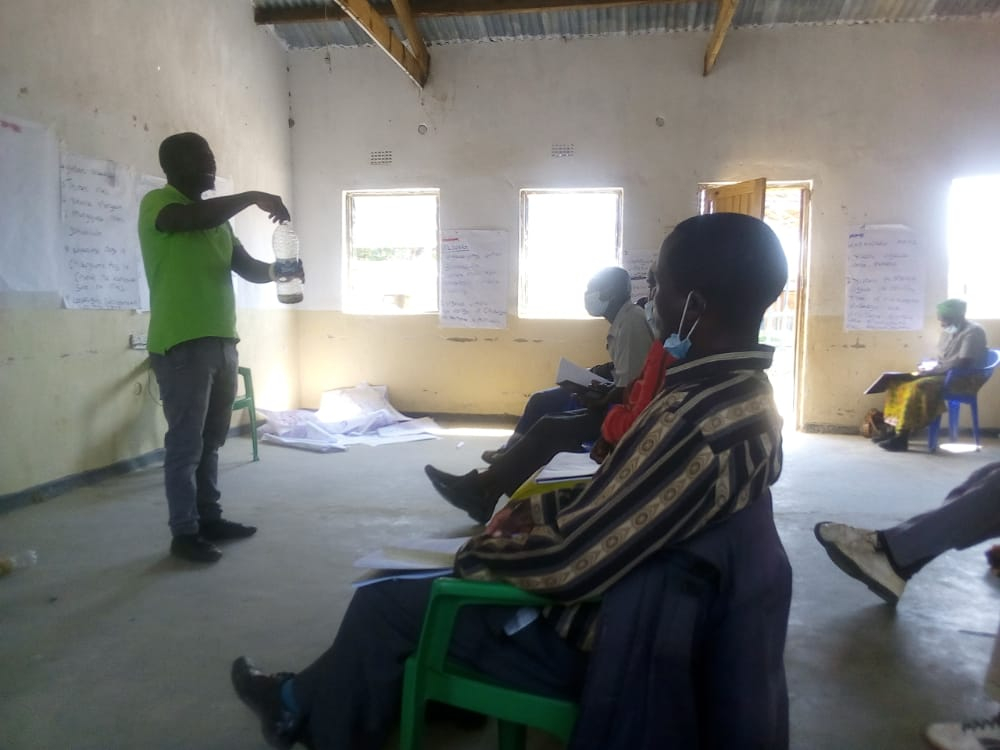
The crops in Manyamula have been harvested and collected in! And our training department are already hard at work responding to the huge demand from new farmers for training in Deep Bed technology, training more lead farmers and distributing essential tools. It will take more than the Covid-19 pandemic to stop our dedicated team from reaching families, with training and assistance.
Godfrey, Tiyeni training manager, is shown (above) demonstrating liquid compost making (with chicken droppings), overseeing land tillage to 30cm depth (the sandy soil and the wearing of face masks are additional challenges) and donating a handwashing bucket to the community (below).
Field officer, Timothy, was on hand as well to teach correct Deep Bed construction, how to make pit compost and how to use a line level for correct alignment of crop beds.
All supported with huge thanks by Halcrow Foundation.
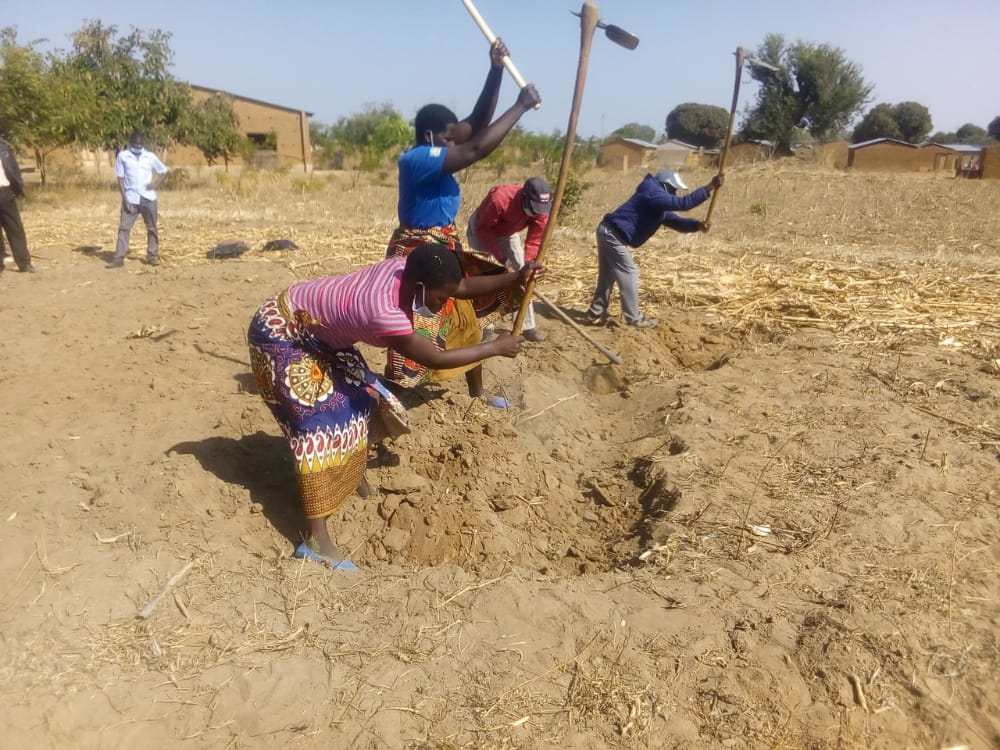
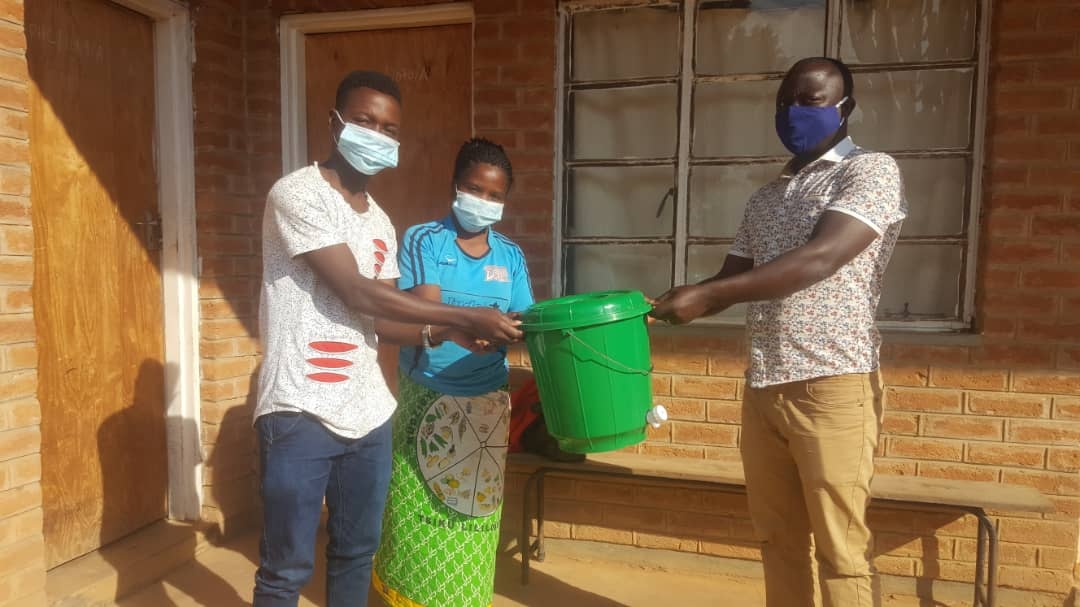
Thank you for your interest in our cause and work to double farming yields in Malawi. We hope you are all well and stay safe.
The Tiyeni team